Showing 229–240 of 301 results
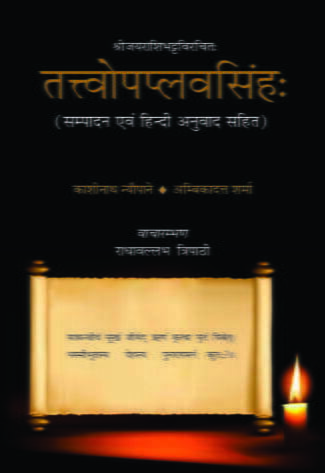
It is, for the first time, a complete Hindi translation of Bhatta Jairashis Tattvopaplavasimha by the two well-versed scholars of classical Indian Philosophy has been brought about. This translation, with a close hermenutical rendering of the text, provides a convincing structure of skeptical deconstruction of all the major systems of Indian Philosophical thought. Its study leads a reader toward a radical support of Charvaka Ideology by declaring the annihilation of all principles.
We come across variety of fragmented ideas related to the Philosophy of Charvaka in name of Bhutacaitanyavadi, Lokayatika, Akriyavadi and so on. But the Tattvopaplavasimha of Jairashi Bhatta is the only text available in Indian tradition which claims to rediscover the tradition of Brihaspati, supposed to be the founder of Charvaka Philosophy. It is, for the first time, a complete Hindi translation of the Tattvopaplavasimha is brought out by two well-versed scholars of classical Indian Philosophy. This translation, with a close hermeneutical rendering of the text, provides a convincing structure of dialectical as well as sceptical deconstruction of all the major systems of Indian Philosophical thoughts. Its study leads a reader towards a radical support of Charvaka ideology by declaring the annihilation of all principles.
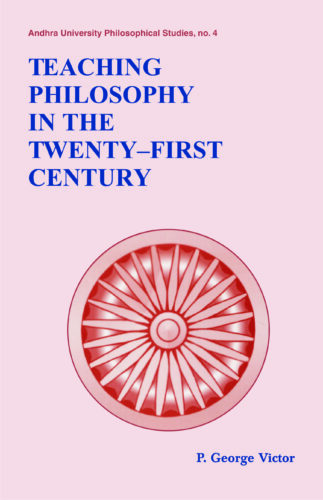
The papers study various aspects of teaching philosophy: its methods, models, techniques and associated problems and prospects. They scrutinize philosophy curriculum in universities and use of computers for teaching it. They discuss ways to popularise philosophy and introduce it at the elementary level in schools.
The relevance of philosophy in the strife torn world of today cannot be undermined: going into the why of ideas, philosophy examines the importance of concepts and ways to cultivate values, and foster them. But its growing unpopularity particularly as a discipline of study warrants specific attention. The book explores an important factor responsible for this the way in which philosophy is taught. The papers, presented at a national seminar sponsored by Indian Council of Philosophical Research, look into various aspects of teaching philosophy: its methods, models, techniques, associated problems and prospects in the coming decades to highlight the nature and relevance of philosophy. They scrutinise the philosophy curriculum in universities today and study the methods of teaching philosophy in ancient India, with their stress on summarising the essence of philosophical doctrines in sutras or aphorisms. Scholars from the West in their thought-provoking analyses present the changing patterns of curriculum and syllabus of philosophy, and the use of computers and science fiction for the purpose. The Indian teachers of philosophy, both old and young, emphasise on acquainting the students with philosophy right from the school level, and teaching philosophy in an entertaining yet edifying manner by presenting life stories of philosophers and teaching through novel methods. They discuss the need to introduce and popularize philosophy among people in general so as to make philosophy a way of life that can usher in moral and spiritual progress in the Twenty-first Century.
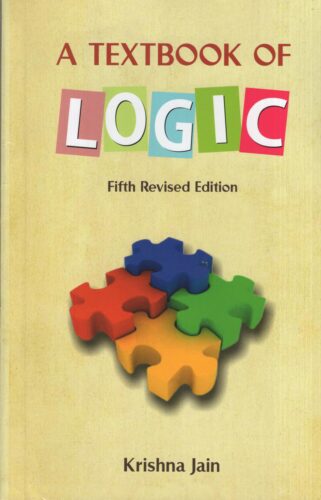
This book sets forth the principles and procedures of elementary Logic in a more simplified way. The enlarged edition of A Text Book of Logic Þ An Introduction, it includes an additional chapter on Uses of Language and its Functions besides the main topics on Deductive, Inductive and Symbolic Logic prescribed by various universities.
The present book is the fifth enlarged edition of the earlier book A Text Book of Logic An Introduction. The current edition includes additional chapters on Arguments and Explanations, and Dilemma. Like the earlier book, the present book sets forth the principles and procedures of elementary Logic in the most simplified way and is specifically designed and intended for the use of undergraduate students. It contains almost all the main topics on Deductive, Inductive and Symbolic Logic prescribed in the syllabi of different universities in the country.
The book attempts to present a clear perspective on Logic as a science of correct reasoning. In the introductory chapter the aim of Logic and the task of a Logician are elaborated. Other topics covered here are Terms, Propositions, Immediate Inference, Syllogism, Boolean Equations, Venn Diagrams, Anti-Logism Theorem, Truth Functions, Truth Table, Deductive Method, Predicate Calculus, Scientific Inductions, Causation, Mill’s Methods and Informal Fallacies to mention a few. All the topics are explained with the help of diagrams and lucid examples. Each chapter is followed by plenty of fresh and exclusive exercises for the benefit of students.

The book recounts 100 darsanas delving into the meaning of the Atmopadesa Satakam One Hundred Verses of Self-Instruction of Narayana Guru to present insights into the essence of Guru-disciple transmission. It combines the mystical element with scientific rigour to attempt a total transformation of consciousness in the reader.
With this verse you are entering into an intense spiritual discipline. Thus concludes the commentary of the first verse of Atmopadesha Shatakam, the One Hundred Verses of Self Instruction of Narayana Guru, the best known of his major works. Epitomizing the essence of Guru-disciple transmission, That Alone: The Core of Wisdom recounts 100 darsanas presenting the meaning of Atmopadesha Shatakam to a group of disciples. The power of the Hundred Verses is summed up by Guru Nitya: There is no need to learn each verse and then rationally apply it in everyday life. You can even hear it and forget it. Forgetting means it only goes deeper into you. Once you have heard it, it will go and work its way by itself. The effect will be very subtle. It comes almost without you knowing that it is somethings which you heard that is enabling you to see things in a new light or make resolutions in a certain more helpful way. Combining scientific rigor with mystical rapture, this book has the power to bring about a total transformation of consciousness by leading the reader to his or her own Core, wherein lies the essence of wisdom.

This book is an excellent exposition of the complex philosophy of Advaita. A special feature of the book is that it inspires the readers to inquire deeply into their own traditions and undertake the mystical quest.
Written with extraordinary clarity and elegance, this book is an excellent exposition of the complex philosophy of Advaita. A special feature of the book is that it inspires the readers to inquire deeply into their own traditions and undertake the mystical quest. The author’s emphasis on first-hand truth is indeed heartening, for, as he says quite rightly, ultimate questions are too important to be left for others to determine the answers. Professor Puligandla approaches Vedanta as a free and independent thinker with a desire to modernize its format and shows the key to search and reach the highest form of living truth by tracing the single theme of non-dualism.
Indisputably one of the world’s best-known books, the Bhagavadgita embodies the quint-essence of classical Upanisadic philosophy, presented in the form of a dialogue between Krsna, the archetypal teacher, and Arjuna, the archetypal human being caught in the grip of a monumental crisis. For anyone like Arjuna who has ever paused to ponder the meaning of life, the work is as relevant today as it was when it was written.
By stripping away the manifold biases — both subtle and obvious — that have colored other commentaries, Guru Nitya has uncovered the perennial philosophy at the heart of this great classic. In an original, easy to understand format, his commentary divides each of the Gita’s eighteen chapters into three sections: the first elucidating the basic concepts involved; the second including Sanskrit text in Roman script along with the English meaning of each word or phrase and Nataraja Guru’s lucid and revolutionary English translation; and the third carrying explanatory notes and comments in the form of a dialogue between a teacher and student.
The breakthrough of this interpretation of the Gita is in its transcendence of sectarian dogma to reveal the work as a fully developed scientific psychology, whose keen insights and vivid reasoning can be readily appreciated by the twenty-first-century mind.
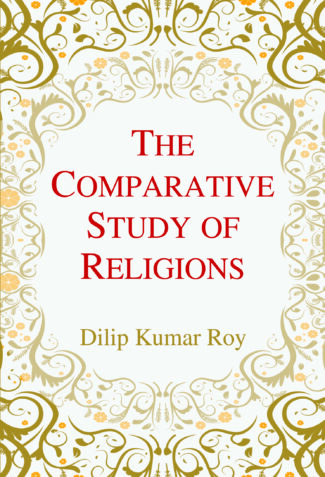
The book discusses the fundamental aspects of the comparative study of religions such as its origin and development, its nature, conditions and problems and also its method. The modern trend points to an interreligious dialogue or encounter in the sense of mutual understanding of religions as “human involvements”.
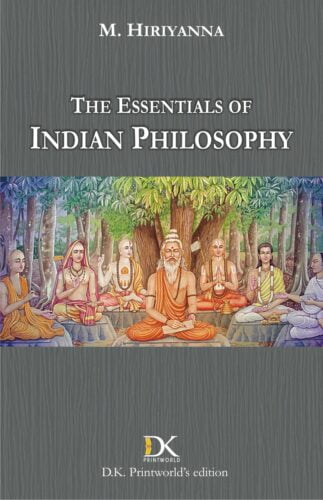
This volume deliberates on the “essentials” of Indian philosophy allowing one to peruse, analyse and absorb its crux. It has set its focus on the history of Indian philosophy starting from the course of Vedic religion, its transition to the prominent systems, its intake from the non-Vedic schools of thought, and the details and analysis of NyÀya-VaieÈika, SÀÚkhya-Yoga, PÂrva-MÁmÀÚsÀ, and VedÀnta from both an absolutistic and a theistic approach.
As the title indicates, this volume deliberates on the essentials of Indian philosophy allowing one to peruse, analyse and absorb its crux. It has set its focus on the history of Indian philosophy starting from the course of Vedic religion, its transition to the prominent systems, its intake from the non-Vedic schools of thought, and the details and analysis of NyÀya-VaieÈika, SÀÚkhya-Yoga, PÂrva-MÁmÀÚsÀ, and VedÀnta from both an absolutistic and a theistic approach. The book portrays the authentic chronological limits of these systems, disagreeing many a theory and study. Its in-depth but concise and connecting account of Indian philosophical systems has vivid interpretations and daunting criticisms. A historical survey accompanies each natural division of the subject along with its theory of knowledge, ontology and practical teaching. It makes one grasp the fundamentals of Indian philosophy at ease and navigate further to its nuances across a vide spectrum of readers.

This volume deliberates on the “essentials” of Indian philosophy allowing one to peruse, analyse and absorb its crux. It has set its focus on the history of Indian philosophy starting from the course of Vedic religion, its transition to the prominent systems, its intake from the non-Vedic schools of thought, and the details and analysis of NyÀya-VaieÈika, SÀÚkhya-Yoga, PÂrva-MÁmÀÚsÀ, and VedÀnta from both an absolutistic and a theistic approach.
As the title indicates, this volume deliberates on the essentials of Indian philosophy allowing one to peruse, analyse and absorb its crux. It has set its focus on the history of Indian philosophy starting from the course of Vedic religion, its transition to the prominent systems, its intake from the non-Vedic schools of thought, and the details and analysis of NyÀya-VaieÈika, SÀÚkhya-Yoga, PÂrva-MÁmÀÚsÀ, and VedÀnta from both an absolutistic and a theistic approach. The book portrays the authentic chronological limits of these systems, disagreeing many a theory and study. Its in-depth but concise and connecting account of Indian philosophical systems has vivid interpretations and daunting criticisms. A historical survey accompanies each natural division of the subject along with its theory of knowledge, ontology and practical teaching. It makes one grasp the fundamentals of Indian philosophy at ease and navigate further to its nuances across a vide spectrum of readers.
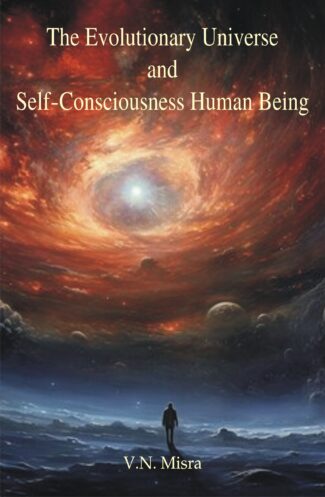
The book elucidates scientifically and philosophically the evolutionary universe (brahmāṇḍa) and the self-conscious human being (piṇḍa). This universe came into form about 14-13.7 billion years ago and has undergone perpetual changes including life on earth some 3.9 billion years ago. Man’s self-conscious evolution is driven by his intellectual growth and philosophical wisdom.
The book elucidates scientifically and philosophically the beginning of the evolutionary universe (brahmāṇḍa) and the intellectual growth of self-conscious human being (piṇḍa), the former is “out” there and the latter is “out” here. Without the latter, the former is difficult to be perceived or known. Going by the scientific cosmology, this universe came into form about 14-13.7 billion years ago as a result of Big Bang, and has undergone perpetual changes including life on earth some 3.9 billion years ago. Man’s self-conscious evolution is driven by his intellectual growth and philosophical wisdom. It has been studied both from the Indian and Western philosophic perspectives.
The philosophical wisdom in this regard is in sync with many modern scientific concepts. The Sāṁkhya–Yoga philosophy is embodied with the concepts of sattva, rajas and tamas. These three are in a sense comparable to the proton, the electron and the neutron of modern science. The proton provides the coalescence or the form of the atom; the electron gives us energy and proton provides the mass. Some other Indian philosophical systems like Vaiśeṣika, Advaita Vedānta and Bauddha are replete with similar scientific approaches. So also are the studies of Western philosophers like Immanuel Kant, David Hume, Niels Bohr and David Bohm. All the things are happening within the time and space.
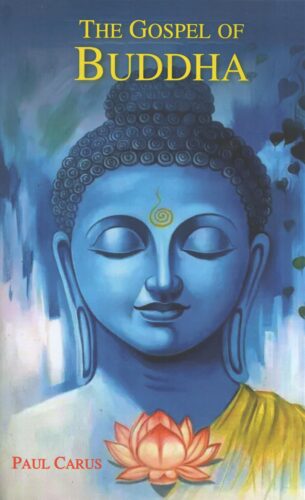
The Gospel of Buddha sketches the picture of a religious leader of the remote past with a view of make it bear upon the living present and become a factor in the formation of the future. It essentially talks about all major developments in the life of the Buddha and helps all true Buddhists understand the real tenets of Buddhism to stand firm on ground.
The Gospel of Buddha characterizes the spirit of Buddhism correctly and concisely. It draws parallelisms in Western thoughts, especially those which reflect in the Christian Gospels. Buddhism like Christianity has a number of sects and this book, however, does not side with any sectarian tenets, but takes an ideal position upon which all true Buddhists may stand up as on firm ground. It helps people to comprehend Buddhism better in an easy way and it sets the reader thinking on the problems and challenges of religions today.
It sketches the picture of a religious leader of the remote past with a view of make it bear upon the living present and become a factor in the formation of the future. It essentially talks about all major developments in the life of the Buddha – his transformation from Prince SiddhÀrtha to the Buddha, to his founding of the Kingdom of Righteousness, to the consolidation of his religion, to his teachings, and to the parables and stories that he used, to his last days.
This book is expected to serve both the Buddhists and Christians to penetrate deep into the spirit of their faith so as to see its full length, breadth and length.

The Gospel of Buddha sketches the picture of a religious leader of the remote past with a view of make it bear upon the living present and become a factor in the formation of the future. It essentially talks about all major developments in the life of the Buddha and helps all true Buddhists understand the real tenets of Buddhism to stand firm on ground.
The Gospel of Buddha characterizes the spirit of Buddhism correctly and concisely. It draws parallelisms in Western thoughts, especially those which reflect in the Christian Gospels. Buddhism like Christianity has a number of sects and this book, however, does not side with any sectarian tenets, but takes an ideal position upon which all true Buddhists may stand up as on firm ground. It helps people to comprehend Buddhism better in an easy way and it sets the reader thinking on the problems and challenges of religions today.
It sketches the picture of a religious leader of the remote past with a view of make it bear upon the living present and become a factor in the formation of the future. It essentially talks about all major developments in the life of the Buddha – his transformation from Prince SiddhÀrtha to the Buddha, to his founding of the Kingdom of Righteousness, to the consolidation of his religion, to his teachings, and to the parables and stories that he used, to his last days.
This book is expected to serve both the Buddhists and Christians to penetrate deep into the spirit of their faith so as to see its full length, breadth and length.
| × |
|
Tantric Rituals of Kerala Temples 1 x ₹1,440.00 |
| × |
|
Sri Yantra and The Geophilosophy of India 1 x ₹540.00 |